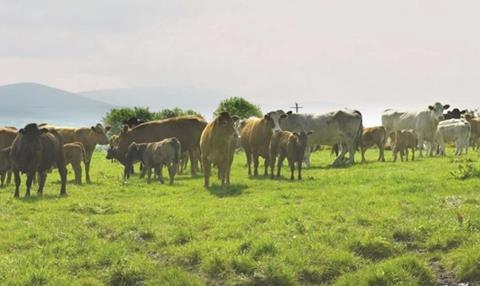The Agriculture and Horticulture Development Board (AHDB) has released its Agri-market Outlook for 2024, reporting that long term resilience in farming will be challenged amid cumulative inflationary pressure.

AHDB examined trends in farm business inputs and consumer demand, collating an outlook for each levy-paying sector.
In the beef sector, AHDB reported concern over the long term direction of the national suckler beef herd, which it said was driven by production economics, access to land and agricultural policy. In 2024, AHDB expects some optimism for some discrete volume demand increases but the category will be sensitive to consumer finances and competition from other proteins.
Looking towards the lamb sector, the Outlook detailed how there may be slight declines in domestic production, both from limited expansion in the lamb crop and contraction in the breeding flock due to "general industry uncertainty".
Additionally, AHDB said that there will be pressure from imports, with large price disparity with the Southern Hemisphere and increased tariff free access with Australia. Exports will reportedly decline in line with lower domestic production, as the EU remains the UK's "key destination". AHDB also said that events such as Easter and Eid could help boost the falling domestic demand for lamb that continues to cause concern.
No recovery in pork herd or production is expected, with competition from chicken causing "hard challenges". Meanwhile, a small uplift in trade may come as potential opportunities in the US and Mexico increase alongside competitive EU imports. A fall in feed prices may bring relief, while escalating straw costs present a risk through 2024.
Input cost increases put pressure on farm business margins
The Outlook highlighted cumulative inflation of more than 30% in agricultural inputs since 2019, coupled with market stresses and policy uncertainty, as the key drivers behind the threat to long term resilience in the industry.
It also revealed markets, food businesses and consumers are still battling with the ongoing challenges of inflation, fuelled by the energy crisis, the war in Ukraine and shortage of labour. AHDB said that recent developments in the Middle East also represent additional risk to the global economy and UK inflation.
AHDB head of economics and analysis Sarah Baker said: "Farmers saw input costs rise significantly during 2023, putting pressure on farm business margins with the cost of fertiliser being a prime example.
"While some input costs are falling, they remain above pre-inflation levels and are likely to remain risky due to linkage to energy markets and instability around the world. Coupled with market stresses and policy uncertainty around burgeoning environment schemes and the budgets that underpin them, long term resilience will be put under pressure.
"With the current level of uncertainty on multiple fronts, markets, businesses and consumers are now operating in a short-term bubble which poses a risk to long term resilience and inward investment. Without long term certainty and the recover of consumer confidence, challenges are likely to persist for the industry in 2024."
This story was originally published on a previous version of the Meat Management website and so there may be some missing images and formatting issues.















